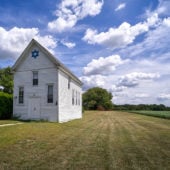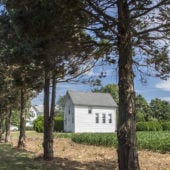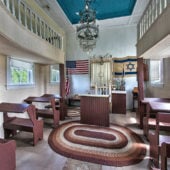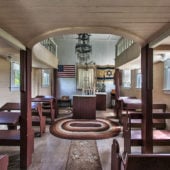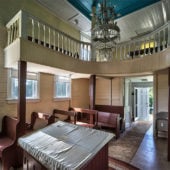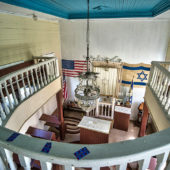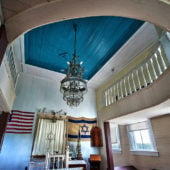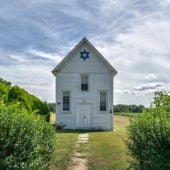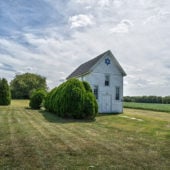The smallest of the area’s existing historic, agricultural colony synagogues.
Officially named Beth Israel, the simple wood-frame building, standing on land deeded by the Galiner family, is better known as the Garton Road Shul. Built in 1890, the shul was officially incorporated in 1898. Standing on a rural road in the midst of fields between Bridgeton and Vineland, it is the smallest of the existing historic synagogues in the area.
The carpenter gothic shul was constructed by Jewish immigrants from Eastern Europe and Russia who established agricultural colonies in the United States and Canada. There were several such colonies in the surrounding New Jersey counties of Cumberland, Gloucester and Salem. Unlike many similar agricultural colonies, the South Jersey Jewish farming colonies were somewhat successful. Good soil and rail connections to Philadelphia and New York provided easy access to primary markets for their products. Furthermore, southern New Jersey is perfectly located between two large water bodies, the Delaware Bay and Atlantic Ocean, which provide a microclimate perfect for farming. It is no coincidence that today these same agricultural lands of Salem and Cumberland Counties are known as “The Garden Spot of the Garden State.”
As the rural population declined in the 1920s, the shul fell into disrepair, but in the 1940s more Jews moved into the area and improvements were made. Moris Ostroff, descendant of the founders of the shul, and his wife Helyn, have dedicated themselves to maintaining this treasure. Much of the interior remains in its original condition.
As of 2015, services are held once a year on the eve of Shabbat Shuvah, as a community event to showcase the shul.

